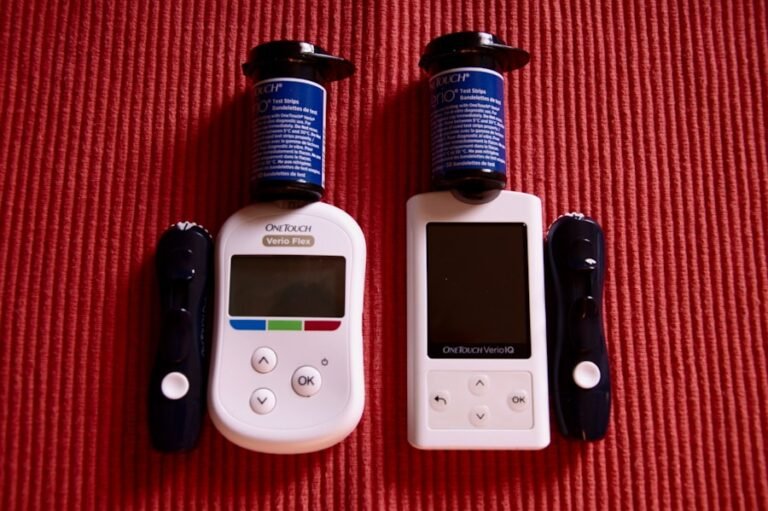Managing Diabetes: Tips for a Healthier Lifestyle
Diabetes is a chronic condition characterized by elevated levels of glucose in the blood, resulting from the body’s inability to produce or effectively use insulin. Insulin is a hormone produced by the pancreas that plays a crucial role in regulating blood sugar levels. There are primarily two types of diabetes: Type 1 and Type 2.
Type 1 diabetes is an autoimmune condition where the immune system attacks insulin-producing beta cells in the pancreas, leading to little or no insulin production. This type typically manifests in childhood or adolescence, although it can occur at any age. On the other hand, Type 2 diabetes is more prevalent and is often associated with lifestyle factors such as obesity, physical inactivity, and poor dietary habits.
In this form, the body either becomes resistant to insulin or does not produce enough insulin to maintain normal glucose levels. The implications of diabetes extend beyond just blood sugar management; they encompass a range of potential complications affecting various organ systems. Chronic high blood sugar can lead to cardiovascular diseases, nerve damage (neuropathy), kidney damage (nephropathy), and eye problems (retinopathy).
Furthermore, individuals with diabetes are at an increased risk for infections and slower healing processes due to compromised immune function. Understanding these risks is essential for effective management and prevention of complications. Education about the disease, its symptoms, and its long-term effects is vital for individuals diagnosed with diabetes and their families, as it empowers them to take proactive steps in managing their health.
Table of Contents
Key Takeaways
- Diabetes is a chronic condition that affects the body’s ability to regulate blood sugar levels
- A balanced diet with a focus on portion control and healthy food choices is essential for managing diabetes
- Regular physical activity and exercise can help improve blood sugar control and overall health
- Monitoring blood sugar levels regularly is crucial for managing diabetes effectively
- Medication management, including insulin therapy, is often necessary for people with diabetes to maintain healthy blood sugar levels
Nutrition and Meal Planning
Nutrition plays a pivotal role in managing diabetes effectively. A well-balanced diet can help regulate blood sugar levels, maintain a healthy weight, and reduce the risk of complications associated with the disease. Carbohydrates are particularly important to monitor, as they have a direct impact on blood glucose levels.
Individuals with diabetes are often advised to focus on complex carbohydrates, such as whole grains, legumes, fruits, and vegetables, which are digested more slowly and result in a gradual increase in blood sugar. In contrast, simple carbohydrates found in sugary snacks and beverages can cause rapid spikes in glucose levels. Meal planning is an essential strategy for individuals with diabetes to ensure they are consuming balanced meals while keeping their blood sugar levels stable.
This involves not only choosing the right types of foods but also paying attention to portion sizes. The plate method is a popular visual tool that can help individuals visualize their meals: half of the plate should be filled with non-starchy vegetables, one-quarter with lean protein, and one-quarter with whole grains or starchy foods. Additionally, incorporating healthy fats from sources like avocados, nuts, and olive oil can enhance satiety and provide essential nutrients without causing significant blood sugar fluctuations.
Regular meal times and consistent carbohydrate intake can also aid in maintaining stable glucose levels throughout the day.
Physical Activity and Exercise

Engaging in regular physical activity is another cornerstone of diabetes management. Exercise helps improve insulin sensitivity, allowing the body to use glucose more effectively. It also aids in weight management, which is particularly important for individuals with Type 2 diabetes, as excess weight can exacerbate insulin resistance.
The American Diabetes Association recommends at least 150 minutes of moderate-intensity aerobic activity per week, such as brisk walking or cycling, along with resistance training on two or more days per week. This combination not only helps control blood sugar levels but also enhances overall cardiovascular health. Incorporating physical activity into daily routines can be achieved through various means.
For instance, individuals can opt for walking or biking instead of driving short distances, take the stairs instead of elevators, or participate in group fitness classes that promote social interaction while exercising. It’s important to note that individuals with diabetes should consult their healthcare provider before starting any new exercise regimen, especially if they have other health conditions or complications related to diabetes. Monitoring blood sugar levels before and after exercise is also crucial, as physical activity can lead to fluctuations in glucose levels that may require adjustments in food intake or medication.
Monitoring Blood Sugar Levels
| Time of Day | Blood Sugar Level (mg/dL) |
|---|---|
| Before Breakfast | 110 |
| Before Lunch | 120 |
| Before Dinner | 100 |
| Before Bedtime | 130 |
Regular monitoring of blood sugar levels is essential for effective diabetes management. It allows individuals to understand how their bodies respond to different foods, activities, medications, and stressors. Blood glucose meters are commonly used devices that provide immediate feedback on glucose levels, enabling users to make informed decisions about their diet and activity levels.
Continuous glucose monitoring (CGM) systems are also available; these devices provide real-time data on glucose fluctuations throughout the day and night, offering a more comprehensive view of blood sugar patterns. Understanding target blood sugar ranges is critical for individuals managing diabetes. Generally, fasting blood sugar levels should be between 80-130 mg/dL, while postprandial (after meals) levels should be less than 180 mg/dL.
However, these targets may vary based on individual circumstances and should be discussed with healthcare providers. Keeping a log of blood sugar readings can help identify trends and triggers that affect glucose levels, allowing for timely adjustments in diet or medication. Additionally, recognizing symptoms of hypoglycemia (low blood sugar) and hyperglycemia (high blood sugar) is vital for prompt intervention and prevention of serious complications.
Medication Management
For many individuals with diabetes, lifestyle changes alone may not be sufficient to achieve optimal blood sugar control; therefore, medication management becomes necessary. The choice of medication depends on various factors including the type of diabetes, individual health status, and personal preferences. Common medications for Type 2 diabetes include metformin, which helps improve insulin sensitivity and reduce glucose production by the liver; sulfonylureas that stimulate insulin release from the pancreas; and GLP-1 receptor agonists that enhance insulin secretion while slowing gastric emptying.
In Type 1 diabetes, insulin therapy is essential since the body does not produce insulin at all. Insulin can be administered through injections or an insulin pump that delivers continuous doses throughout the day. It’s crucial for individuals on insulin therapy to understand how different types of insulin work—rapid-acting insulins are typically used around meal times to manage postprandial spikes in blood sugar, while long-acting insulins provide baseline coverage throughout the day.
Regular communication with healthcare providers about medication effectiveness and side effects is important for optimizing treatment plans.
Stress Management and Mental Health

The relationship between stress and diabetes is complex yet significant. Stress can lead to hormonal changes that may increase blood sugar levels, making effective stress management an integral part of diabetes care. Techniques such as mindfulness meditation, yoga, deep breathing exercises, and progressive muscle relaxation can help mitigate stress responses and promote emotional well-being.
Engaging in hobbies or activities that bring joy can also serve as effective outlets for stress relief. Mental health is another critical aspect of managing diabetes. Individuals living with chronic conditions often experience feelings of anxiety or depression due to the constant demands of self-management.
It’s essential for those affected by diabetes to seek support from mental health professionals when needed. Cognitive-behavioral therapy (CBT) has been shown to be effective in helping individuals develop coping strategies and address negative thought patterns related to their condition. Support groups can also provide a sense of community and shared experience that fosters resilience and motivation.
Regular Medical Check-ups
Regular medical check-ups are vital for monitoring the overall health of individuals with diabetes and preventing complications associated with the disease. These visits typically include assessments of blood pressure, cholesterol levels, kidney function tests, and foot examinations to check for neuropathy or circulation issues. Eye exams are particularly important as diabetes increases the risk of retinopathy; therefore, annual visits to an eye care professional are recommended.
Healthcare providers may also conduct HbA1c tests during routine check-ups to assess long-term blood sugar control over the past two to three months. The target HbA1c level for many adults with diabetes is generally below 7%, but individual goals may vary based on age and other health factors. Regular communication with healthcare teams allows for timely adjustments in treatment plans based on test results and overall health status.
Support and Resources for Diabetes Management
Navigating life with diabetes can be challenging; however, numerous resources are available to support individuals in their management journey. Diabetes education programs offer valuable information about self-care practices, nutrition, exercise, and medication management tailored specifically for those living with the condition. Many hospitals and community centers provide access to certified diabetes educators who can guide patients through personalized care plans.
Online resources also play a significant role in providing information and support for individuals with diabetes. Websites such as the American Diabetes Association offer educational materials, recipes, forums for discussion, and tools for tracking blood sugar levels and dietary intake. Mobile applications designed for diabetes management can assist users in logging their meals, medications, and physical activity while providing reminders for monitoring blood sugar levels.
Connecting with local support groups or online communities can foster a sense of belonging and encouragement among individuals facing similar challenges in managing their diabetes effectively.







